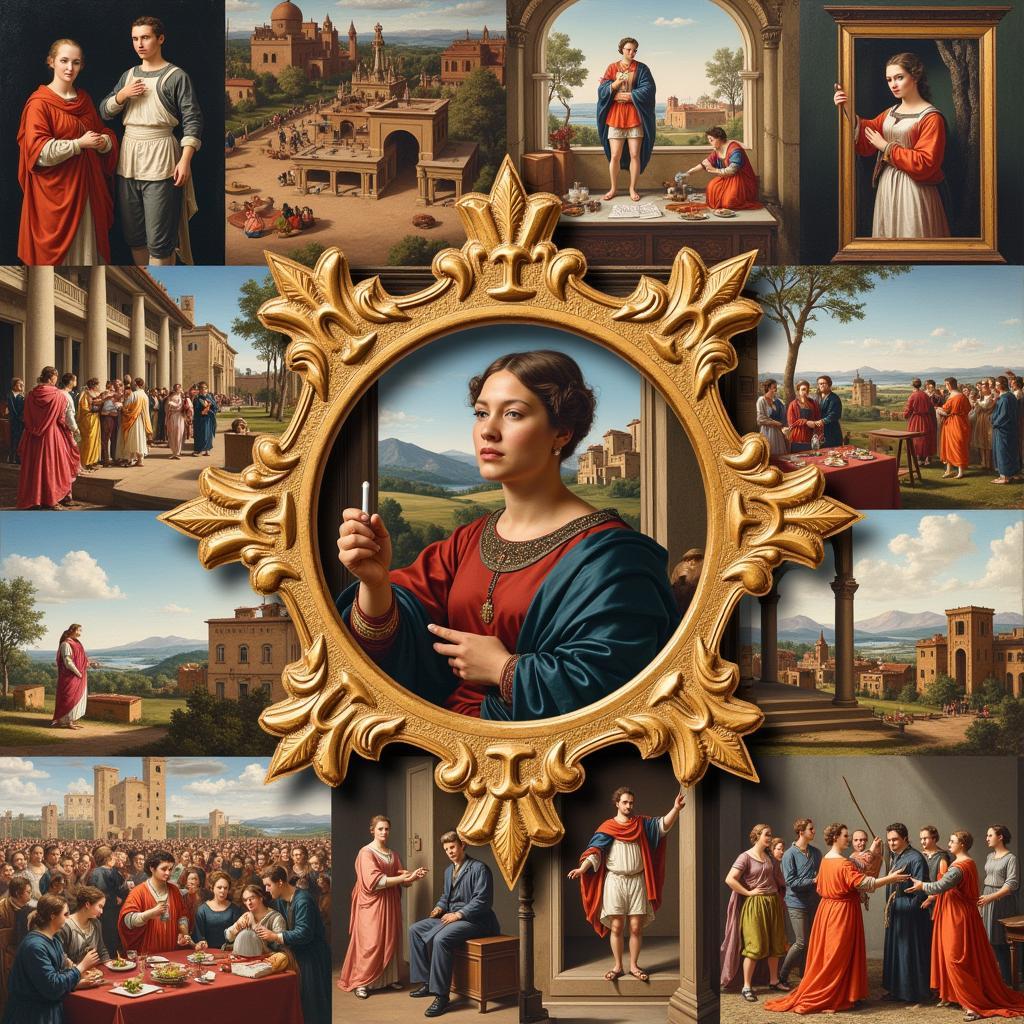The Medici Society, a name synonymous with the Italian Renaissance, played a crucial role in shaping not just art and culture, but also fostered a unique environment conducive to peace, albeit within the confines of their political influence. This article delves into the impact of the Medici family, exploring their contributions and examining how their patronage created a climate of intellectual exchange and relative stability. We’ll discuss their legacy and its implications for building a more peaceful world today.
The Rise of the Medici: From Merchants to Patrons of Peace
The Medici family’s ascent to power in Florence began in the 14th century, rooted in banking and commerce. Their wealth allowed them to become prominent figures in Florentine society. This influence eventually translated into political power, allowing them to shape the city’s destiny for centuries. Their support of artists, philosophers, and scientists created a unique ecosystem fostering intellectual and cultural growth, indirectly contributing to a more peaceful and stable Florence. One of the key aspects of the Medici reign was their ability to use art and culture as tools for diplomacy and negotiation, thereby mitigating conflicts and promoting peace within their sphere of influence. The Medici family understood the unifying power of art and culture, utilizing it to bridge divides and cultivate a shared sense of identity among the people of Florence.
The establishment of institutions like the Platonic Academy, under Cosimo de’ Medici, is a testament to their commitment to intellectual discourse and the pursuit of knowledge, which are essential ingredients for lasting peace. These platforms encouraged the exchange of ideas, fostering a sense of community and shared purpose, thereby mitigating the potential for social unrest. This investment in human capital laid the foundation for a more prosperous and peaceful society.
Medici Society and the Flourishing of Arts and Sciences
The Medici’s patronage extended beyond the arts, encompassing scientific inquiry and exploration. This fostered an environment of innovation and discovery, which indirectly contributed to a more prosperous and therefore, more stable Florence. Their support for individuals like Leonardo da Vinci and Galileo Galilei exemplifies their commitment to pushing the boundaries of human knowledge. By encouraging scientific progress, the Medici family not only enriched Florentine society but also laid the groundwork for future advancements that would benefit all of humanity. This approach resonated with the broader goals of the American Society for Tropical Medicine and Hygiene.
What was the Medici Society’s primary contribution? Their primary contribution was fostering a climate of artistic, cultural, and intellectual flourishing, which indirectly promoted peace and stability in Florence.
The Medici’s Legacy: A Blueprint for Peace Through Culture?
While the Medici’s rule wasn’t without its challenges and controversies, their contribution to the arts, sciences, and culture is undeniable. Their legacy continues to inspire us to explore the potential of culture as a vehicle for peace. The Medici model, with its focus on fostering intellectual exchange and cultural understanding, could offer valuable lessons for contemporary peacebuilding efforts. Could similar initiatives, on a global scale, help bridge divides and foster greater cooperation between nations? Perhaps by investing in education, cultural exchange programs, and platforms for dialogue, we can create a more interconnected and harmonious world. For those interested in the intersection of medicine and society, the Health Medicine and Society page offers further insights.
Lorenzo de’ Medici, often referred to as Lorenzo the Magnificent, wisely noted, “Culture is the foundation of a prosperous and peaceful society.” This philosophy underpinned the Medici family’s approach to governance and continues to resonate with contemporary peacebuilding efforts.
How can we apply the Medici model today? We can draw inspiration from the Medici model by investing in education, supporting the arts, and promoting cross-cultural dialogue to foster greater understanding and cooperation. Those interested in the London branch can find more information at Medici Society London.
 Medici Legacy: Art, Culture, and Peacebuilding
Medici Legacy: Art, Culture, and Peacebuilding
Conclusion
The Medici Society, though primarily known for its artistic and cultural influence, offers valuable lessons in peacebuilding. Their investment in human capital, their patronage of the arts and sciences, and their use of culture as a diplomatic tool, contributed to a more stable and prosperous Florence. By studying their approach, we can gain valuable insights into how culture can be leveraged to foster peace and understanding in our own time. The Society of Hospital Medicine Abstract Submission page provides further information about relevant initiatives at Society of Hospital Medicine Abstract and Society of Hospital Medicine Abstract Submission. The Medici Society’s story reminds us of the transformative power of art and culture in building a more peaceful world.
FAQ
- Who were the Medici?
- What was the Medici Society’s impact on the Renaissance?
- How did the Medici contribute to peace in Florence?
- What lessons can we learn from the Medici Society today?
- What is the legacy of the Medici family?
- How did the Medici use art and culture as tools for diplomacy?
- What were some of the key institutions established by the Medici?
Common Scenarios
- Scenario 1: A community seeks to resolve long-standing conflicts through cultural exchange programs.
- Scenario 2: A nation invests in arts education to promote social cohesion and reduce violence.
- Scenario 3: International organizations utilize cultural diplomacy to build bridges between nations.
Further Exploration
Explore other articles on our website related to peacebuilding, cultural diplomacy, and the power of art and culture.
Need support? Contact us 24/7: Phone: 02043854663, Email: [email protected], or visit us at Zone 34, Bac Giang, 260000, Vietnam.